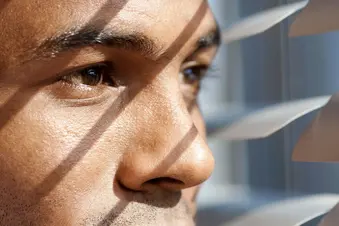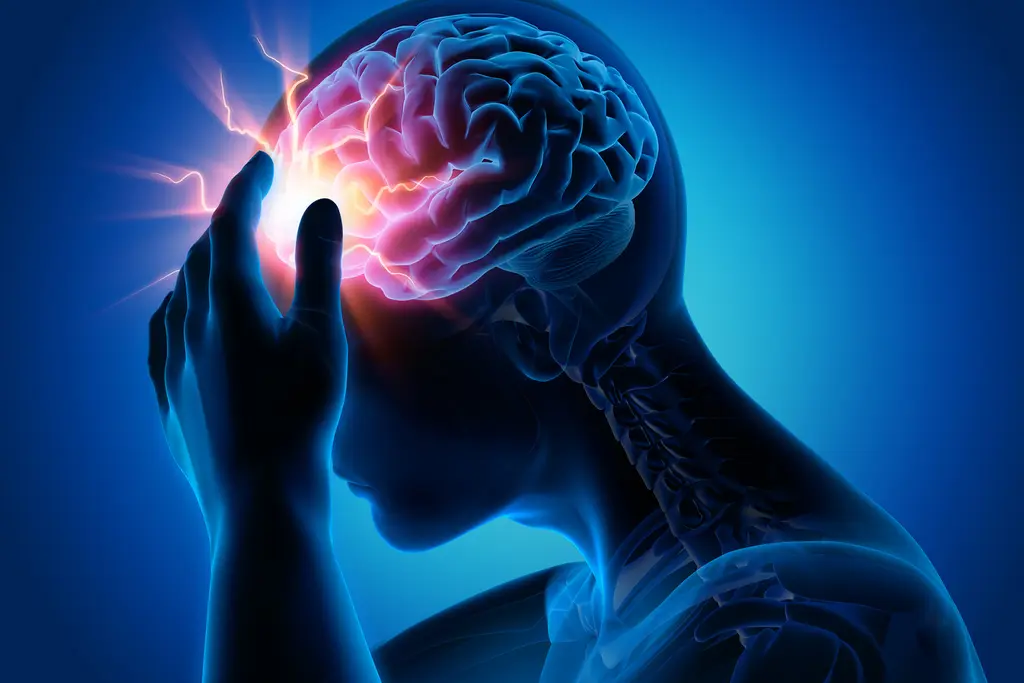
Standard treatments ease depression for a lot of people, but they don't work for everyone. At least 30% of those who try two or more antidepressants continue to have serious symptoms. That's called treatment-resistant depression.
If it happens to you, keep in mind that there are still ways to manage your depression. Talk to your doctor about all of your treatment choices.
"The most important point is not to give up," says John Krystal, MD, chair of the Department of Psychiatry at Yale School of Medicine and a pioneer in research on ketamine and depression. "There are so many of these options – current and emerging – that can really make a difference in a person's life."
What Is Treatment-Resistant Depression?
Experts don't agree on one definition. But in general, it's a form of depression that doesn't improve after you try two antidepressants from different classes of drugs. "If you have to go to a third medication, that's the standard threshold," Krystal says.
For example, he says your doctor might diagnose you with treatment-resistant depression after you're first treated with a selective serotonin reuptake inhibitor (SSRI), such as fluoxetine, and you don't respond. And next, you're treated with a serotonin-norepinephrine reuptake inhibitor (SNRI), such as venlafaxine or duloxetine, and you don't respond to that either.
"Medication acts as a kind of filter," Krystal says. "If you respond to it, then by definition, you don't have treatment-resistant depression."
How to Get a Diagnosis
Before you get a diagnosis of treatment-resistant depression, Krystal says you'll need to go through two rounds of antidepressant treatments. That typically means giving each antidepressant 6 to 8 weeks to work. And if the dose of your first antidepressants doesn't help, your doctor might raise the amount of the drug you take before you switch to a different medicine.
Crystal Clark, MD, an associate professor of psychiatry and behavioral sciences at Northwestern University Feinberg School of Medicine, says it's important to maximize the dose of each antidepressant.
"Sometimes we'll see that people have tried several [antidepressants] that haven't worked, but they've only tried half of the potential dose. That may not necessarily be a failed trial."
Your doctor might also look for hidden causes that could explain why your drug treatments aren't working. There are a "cluster of different reasons" why people don't respond to antidepressants, Krystal says, including things such as:
- You don't take your medicine every day.
- Your body doesn't absorb the drug.
- You have another health condition, like an underactive thyroid.
Outside issues can also play a role. "Some people don't respond [to antidepressants] because so much is going on in their life, and they experience such stress and turmoil that the resolution of their depression is masked or prevented," Krystal says.
What Causes Treatment-Resistant Depression?
There are some theories about genetic and brain differences, Clark says, but there isn't a biomarker or other mechanism that can identify people who'll have treatment-resistant depression. "There's no definitive answer on that question."
Krystal says there are "many different pockets of people" who don't respond to antidepressants. Researchers are trying to figure out the biology behind why that is. This might lead to more personalized treatment down the road. "That strategy is called precision medicine," he says.
Experts are specifically looking into how this targeted approach might help certain groups, such as those who have treatment-resistant depression and lots of inflammation. Krystal says this includes people with conditions such as arthritis, asthma, heart disease, inflammatory bowel disease, and are overweight or have obesity.
In general, your odds of depression go up when you have ongoing inflammation. And Krystal says there's some evidence that the amount of inflammation you have can predict whether you'll respond to antidepressants. He says there's promising evidence that immunosuppressant medication, which blocks signals from pro-inflammatory cytokines, might help ease symptoms for certain people with treatment-resistant depression.
Symptoms
There isn't a specific set of symptoms that makes treatment-resistant depression different from other forms of depression. Experts agree it'd be a lot easier if that were the case. But Krystal says your antidepressant definitely isn't working if you wake up every morning and think, "I don't know how I'm going to get through the day."
Krystal says that if you have no joy, pleasure, or excitement in your life, "that's a good time to start talking to a therapist, counselor, or doctor about what's going on."
Here are some other questions to gauge whether your antidepressant is helping:
- To what degree are you back to your old self?
- Are you sleeping too much or too little?
- Do certain parts of your life not feel right?
- Is your appetite back to normal?
How to Manage Treatment-Resistant Depression
Antidepressants alone may not work very well. Seek help from a doctor who'll give you more choices. "I encourage people to make sure they're working with a psychiatrist who feels comfortable going through the gamut," Clark says. "Not just with oral therapies, but someone who has knowledge of some of the more advanced and novel treatments."
Treatment options for treatment-resistant depression include:
Adjunctive medication. Your doctor can add other drugs to go with your antidepressant. Everyone is different, but common choices may include antipsychotics, mood stabilizers, anti-anxiety medications, thyroid hormone, or other drugs. Your doctor may also suggest pharmacogenetic testing to check for specific genes that show how well you process certain antidepressants.
Talk therapy. There's evidence that psychotherapy can ease depression in some people who don't respond well to antidepressant drugs. "Yet, often, when we're talking about treatment-resistant depression, and thinking about interventions, we're not always including cognitive behavior therapy, family therapy, or supervised work therapy," Krystal says. These therapies may help:
- Cognitive behavioral therapy: Focuses on thoughts, emotions, and behaviors that affect your mood. CBT can help make you aware of your negative thoughts and work on changing to a more positive mindset.
- Dialectical behavioral therapy: Helps you grow problem-solving and acceptance skills. This is especially helpful for people who harm themselves or have repeated suicidal thoughts.
- Behavioral activation: Slowly lowers avoidance and isolation and helps people take part in things they once enjoyed or activities that make them feel better
- Group therapy: Involves other people who have depression working together with a therapist
- Family or marital therapy: Works on lowering stress in your relationships with family members or your spouse or partner. In many cases, this can help with your depression.
Ketamine. Your doctor may suggest this drug to give you rapid relief from treatment-resistant depression. You'll take it in low doses through an IV. The FDA has approved a nasal spray form called esketamine (Spravato). Doctors typically recommend that you take an oral antidepressant along with esketamine or ketamine.
Brain stimulation. Your doctor might want you to go this route if nothing else works or your symptoms are really serious. These procedures include:
- Repetitive transcranial magnetic stimulation (rTMS): Magnetic fields are used to stimulate nerve cells in the area of your brain that involves mood and depression.
- Electroconvulsive therapy (ECT): A small dose of electricity is passed through your brain while you're asleep. That causes a short seizure, which can change the brain's chemistry to help ease symptoms of severe depression. Some side effects might happen, including confusion or memory loss, but they usually don't last a long time.
- Vagus nerve stimulation (VNS): A device is implanted in your chest with a wire that goes to the vagus nerve in your neck. Electrical impulses go from that nerve to the area of your brain that controls moods. That may improve your depression. This procedure is usually tried only if ECT and rTMS don't work.
Tell your doctor if you don't feel 100% better. The goal for your treatment should be the same as other health conditions, Krystal says, such as cancer, heart attacks, or broken bones. "In other words, we don't go to an orthopedic surgeon and tell them, 'I broke my leg, but I want it to be 60% better.' We tell the orthopedic surgeon, 'I want my leg fixed.' "
Show Sources
Photo Credit: amana images/Getty Images
SOURCES:
John Krystal, MD, Robert L. McNeil Jr. professor of translational research and professor of psychiatry and of neuroscience; chair, Department of Psychiatry, Yale School of Medicine; chief of psychiatry, Yale New Haven Hospital.
Crystal T. Clark, MD, associate professor of psychiatry and behavioral sciences and obstetrics and gynecology, Northwestern University Feinberg School of Medicine.
Neuropsychiatric Disease and Treatment: "Management of Treatment-Resistant Depression: Challenges and Strategies."
Frontiers in Immunology: "The role of Inflammation in Depression and Fatigue."
Handbook of Experimental Pharmacology: "Role of Inflammation in Depression and Treatment Implications."
Psychological Medicine: "Effectiveness of psychotherapy for treatment-resistant depression: a meta-analysis and meta-regression.
Mayo Clinic: "Treatment-resistant depression."
